NEW SUBSCRIBERS/FOLLOWERS: Thanks for spending a few minutes with us. This Substack tries to be a for readers and writers. I’d love to think of you wandering back through the archive (110 posts since 2023) and looking at a few Reading Projects, Birth Year Project posts, the linked posts on Voice, Translations, Skinny Reads, etc.
LONG-TIMERS: Thanks for anchoring the vessel!
EVERYONE: [i] My ongoing encouragement to read the posts not in your emails but at the Substack site, where they’ll look the way I made them, and where the footnotes pop up, etc. [ii]: We’ve picked off a lot of years, but the Birth Year Project is still active. Here’s the most recent year, which has the how-to. [iii]: I’d love more back and forth; feel free to respond. [iv]: We’re within crawling distance of 500 subscribers (always free!). Help scare up a few newbies? You can do it, I have every faith . . .
1. RECONSIDERING:
In the Drafts folder was a Reading Project post I’d left unfinished. A Serving of Turkey, I’d subtitled it. It began:
Recently saw a video clip of a guy offering ten bucks to passers-by if they could name the capital of Turkey. The first half a dozen or so were too clueless to even take a wild guess, then one brave soul ventured, “Um, Istanbul?”
But, naturally, I assume all you savvy readers know perfectly well that the capital of Turkey is . . . .1
But how many Turkish fiction writers do you know?
Before today’s post, I’d read only four: Ahmet Altan, Orhan Pamuk, Elif Shafak, and Sevgi Soysal.
Turkey actually has a rich/complex literary history, befitting its unique geo—
The Bosphorus, Gallipoli, etc. I went on to list about fifteen modern Turkish novels you could check out.
Question: Why did I leave the post unfinished?
The pirating of our democracy (in broad daylight!) has torn a ragged hole in my well being. These past two years, working on David’s Lists 2.0 has been my oasis, my noise-canceling headphones. But revisiting A Serving of Turkey last week, I realized that this Substack-as-saferoom posture let me turn a blind eye to a central issue for Turkish writers: how to create and publish authentic/necessary work under a repressive regime that has you in its sights.
[Also realized the subtitle, while mildly clever on the surface, was dismissive/demeaning if you thought about it more than a nanosecond.]
I’ll guess a few of you know something of Turkey’s social/political history of the past century. My hat’s off to you. If you’re as hazily informed as I was, you’ll get more out of today’s post if you have at least the broad outline. I don’t have the space to include it here, but here’s a brief timeline/overview:
https://www.bbc.com/news/world-europe-17994865
2. MORE ABOUT TWO TURKISH NOVELS IN EARLIER POSTS:
Dawn:
Bookflap summary:
As the sun bears down on Adana, cups of raki are passed to the guests of a dinner party at Ali's. Among the diners are a journalist named Oya, who has recently been released from prison, and her new acquaintance, Mustafa. Together they debate communism, and socialism, tossing words around the room "like hot peppers." When police raid Ali's home, his guests are carted off to holding cells, where they are interrogated on charges of harboring leftist sympathies. They are tortured throughout the night.
My note:
Don't let the last sentence above keep you from this novel. A character is beaten, true, but the story's real focus is the impact of a repressive regime on the inner lives of ordinary citizens. It feels as timely today as it must have fifty years ago. Following the military coup in 1971, Soysal was twice imprisoned, accused of belonging to a leftist organization; another of her major works is a memoir of prison life. Sadly, she died of breast cancer at age forty.
Read more here:
Altan:
My first exposure to Ahmet Altan was Like a Sword Wound (1997), the first book of his projected Ottoman Quartet.
When I first posted about Altan, I mentioned his imprisonment, but failed to dig into the story deeply, also failed to grasp that his treatment far from unique.
Altan was arrested in the media purge following the failed 2016 coup d'état, accused of sending "subliminal messages" to encourage the coup’s plotters. In prison, banned from written communications, he wrote the powerful essay, “The Writer's Paradox”—translated into English and published by The Society of Authors, and in the original Turkish by English PEN.
As in the cases of Yavuz Ekinci and Nazim Hikmet (below), Altan drew international support from the likes of Neil Gaiman (and many others) who wrote: "I hope that everyone who can read, whatever their politics, reads Ahmet Altan's response to his imprisonment. Repressive regimes hope that if they lock up writers they are also locking up ideas. This will always fail."
Ahmet and his brother Mehmet Altan, were sentenced to life imprisonment in 2018. His memoir, I Will Never See the World Again (also written in prison and smuggled out via his lawyers), was published in 17 countries around the world—but fearing for the publisher’s safety, not in Turkey. The following year his sentence was reduced to ten years. He was subsequently released on probation, but re-arrested in 2019, just as he was awarded a major prize by the German Publishers and Booksellers Association. He was again released from prison in 2021.
https://en.wikipedia.org/wiki/Ahmet_Altan
Despite legal provisions, freedom of the press in Turkey has steadily deteriorated from 2010 onward, with a precipitous decline following the attempted coup in July 2016. The Turkish government of Recep Tayyip Erdoğan has arrested hundreds of journalists, closed or taken over dozens of media outlets, and prevented journalists and their families from traveling. By some accounts, Turkey currently accounts for one-third of all journalists imprisoned around the world.
[https://wiki2.org/en/Censorship_in_Turkey]
3. BACKGROUND/SOME LINKS:
Look into this subject and right away you see both how widespread the persecution has been and how widely it’s been covered in the international press. Don’t feel obliged to click through the list below, but I wanted you to get a sense of the reporting, as well as give you a place to start if you’d like a deeper dive.
The Wiki sites are richly supported by links to their sources, as well as indexed to related issues.
https://en.wikipedia.org/wiki/Category:Political_prisoners_in_Turkey
https://en.wikipedia.org/wiki/List_of_prosecuted_writers_in_Turkey
https://www.hurriyetdailynews.com/50-shades-of-turkish-censorship-38462
https://www.gatestoneinstitute.org/11092/turkey-erdogan-purge
https://www.dw.com/en/pen-decries-persecution-of-authors-worldwide/a-59819691
https://www.nytimes.com/2016/12/04/world/europe/turkey-crackdown-spares-book-authors.html
https://www.gatestoneinstitute.org/11092/turkey-erdogan-purge
https://tribune.com.pk/story/1773801/exiled-novelist-turkey-like-1930s-germany
https://www.pen-international.org/news/turkiye-wave-of-book-bans-and-restrictions-condemned
4. SMALL SAMPLE OF WORKS BY PERSECUTED/IMPRISONED/SUPPRESSED TURKISH/KURDISH WRITERS:
Soysal and Altan (above) exemplify the abuse visited on Turkey’s world-class writers and remind us that totalitarian governments are steeped in paranoia and routinely suppress free expression. Other examples:
Istanbul, Istanbul, Burhan Sönmez (2015) [trans. by Ümit Hussein, 2016]4
Dream Divided, Yavuz Ekinci (2022)5
March 2023: Banned for containing “terrorist propaganda,” copies confiscated. Also banned were works by renowned crime novelist, Ahmet Ümit, and novels by Murat Kahraman. Response by Burhan Sönmez, PEN International president:
‘We deplore the Turkish authorities’ decision to ban books by Yavuz Ekinci and Murat Kahraman and stand with the many authors and publishers facing similar restrictions in Türkiye. The past few years have seen hundreds of thousands of books destroyed by the Turkish authorities and dozens of independent publishers shut down. Meanwhile, writers and publishers alike deplore a rise in self-censorship, as the threat of being prosecuted and jailed for ‘obscenity’ is all too real. The Turkish authorities should immediately take steps to overturn their latest book bans and end their baseless campaign against reading materials.’
Human Landscapes from My Country: An Epic Novel in Verse, Nâzım Hikmet (written 1939 onward, published 1960)6
5. TWELVE MORE WORKS OF MODERN TURKISH FICTION:
A Memento for Istanbul, Ahmet Ümit (2010)7
The Highly Unreliable Account of the History of a Madhouse, Ayfer Tunç (2009)8
The Wounded Age, Ferit Edgü (2023) 9
The Museum of Innocence, Orhan Pamuk10
Last Train to Istanbul, Ayşe Kulin (2002)11
Mediterranean Waltz, Buket Uzuner (1997)12
Curfew, Adalet Ağaoğlu (1984)13
Dear Shameless Death, Latife Tekin (1983)14
Cold Nights of Childhood, Tezer Özlü (1980)15
Waiting for the Fear, Oğuz Atay (1975)16
Motherland Hotel, Yusuf Atilgan (1973)17
Memed, My Hawk, Yashar Kemal (1955)18
A Useless Man: Selected Stories: Sait Faik Abasiyanik (compilation from 1940s)19
Madonna in a Fur Coat, Sabahattin Ali (1943)20
Links to other sites recommending modern Turkish lit.21
6. Elif Shafak:
I left Shafak off the list above because she (rather than Orham Pamuk) was my gateway to Turkish fiction. She’s what I’d call a public intellectual—PhD in Political Science, writes opinion, commentary, memoir besides her thirteen novels. She’s in exile from Turkey, living and teaching in the U.K. I’ve been following her Substack since I happened on it last year:
Her website: https://www.elifsafak.com.tr/home
To date, I’ve read three of her novels:
The Island of Missing Trees (2023)
10 Minutes 38 Seconds in This Strange World (2018)
Three Daughters of Eve (2016)
Her most recent: There Are Rivers in the Sky (2024):
https://bookshop.org/p/books/there-are-rivers-in-the-sky-elif-shafak/20904500?ean=9780593801710&next=t
Two more links:
https://berggruen.org/people/elif-shafak
https://en.wikipedia.org/wiki/Elif_Shafak
6. TURKISH SPECULATIVE FICTION:
Encountering China’s, The Three Body Problem trilogy, I realized I’d subconsciously assumed sci-fi was a Western phenomenon. Ditto for speculative writing by Turkish writers. For starters, a list from Goodreads:
https://www.goodreads.com/shelf/show/turkish-speculative-fiction
And an anthology:
Anthology of Turkish Science Fiction Stories, Sümeyra Buran and Veli Uğur, ed. (2023)
A classic work of Turkish Sci-fi/Speculative Lit:
The Time Regulation Institute, Ahmet Hamdi Tanpınar (1961) English translation by Maureen Freely and Alexander Dawe (2014).
7. THE READING PROJECT/CHALLENGE:
a) Visit at least five of the background sites [linked in Part 3, or at footnote 21].
b) Read at least one of these:
10 Minutes 38 Seconds in This Strange World, Elif Shafak (2018)
Dawn, Sevgi Soysal (1975)
Like a Sword Wound, Ahmet Altan (1997)
c) Check out Orhan Pamuk’s list of works, pick one, read it.
https://www.orhanpamuk.net/books.aspx
d) Read at least four of the other novels/story collections/memoirs in today’s post. A minimum of two should be pre-2000.
Deadline: 8 September 2026
Capital of Turkey:
https://en.wikipedia.org/wiki/Ankara
Soysal: English translation by Maureen Freely (2022) from Archipelago.
Altan: First volume of The Ottoman Quartet [English translation by Brendan Freely and Yelda Türedi, 2018, from Europa Editions]. Love in the Days of Rebellion (2001) [Freely and Türedi] appeared in 2020. The third book, Dying Is Easier than Loving (2015) [Freely] followed in 2022.
Burhan Sönmez: Kurdish novelist, elected President of PEN International in 2021. Other works: North (2009), Sins and Innocents (2011), Labyrinth (2018), Stone and Shadow (2021, and Lovers of Franz K. (2024).
Dream Divided: Original title, Rüyası Bölünenler [no English translation].
Hikmet: In 1972, I heard a talk on Hikmet’s poetry in Hartford (where I was waiting out the draft); the name stuck with me, along with the passion of the presenter. He remains a major figure in Turkish writing. A life-long communist, he returned from studying in the Moscow when the Turkish Republic was established in 1923, was later jailed several times for his radical views and writings. The final twenty years of his life were spent in exile. His imprisonment in the 1940s was a cause célèbre among intellectuals worldwide; Pablo Picasso, Paul Robeson, and Jean-Paul Sartre and many others campaigned for his release.
A poet, playwright, novelist, screenwriter, director, and memoirist—sometimes described as a “romantic communist” or "romantic revolutionary." His poems have been translated into more than 50 languages. Human Landscapes is considered his magnum opus.
https://en.wikipedia.org/wiki/N%C3%A2z%C4%B1m_Hikmet
Ahmet Ümit: b. 1960, poet, novelist, essayist, writer of comics—known especially for crime fiction. Among his other novels in English translations: The Dervish Gate (2012), The Land of the Lost Gods (2024).
Ayfer Tunç: A wild, satiric novel of modern Turkish culture. “A dizzying array of characters . . . like a post-modern Arabian Nights . . . I might have been tempted to call it a shaggy-dog story, except in many respects it is everything but, in particular the ending, which pulls together all of the threads of the different characters, is spectacular . . .”
[Couldn’t resist downloading the English translation to my Kindle. Stay tuned.]
The Wounded Age: Reprinted together with Eastern Tales by NYRB in 2023.
“Edgü sketches the austere beauty and stark violence of Turkey’s mountainous east and its borderlands in this spare and poignant collection…. In brief, melancholy views of the bleak landscape, Edgü cuts to the heart of the matter, evoking powerful emotions with few words. This will transport readers.” —Publishers Weekly
“A stark and ferocious love letter to a forgotten people, in a gorgeous translation that is utterly true to the wounded dreamscapes of the original. To read these pages is to be there, swept by mountain snows and the cruel winds of politics, undone by harsh beauty and the endless tragedy unfolding.” —Maureen Freely
Orhan Pamuk: Perhaps the Turkish writer with the most international acclaim. Awarded the 2006 Nobel Prize in Literature. Other novels in English include: Snow (2005), The Black Book (2006), My Name Is Red (2011), and Nights of Plague (2023).
Ayşe Kulin:
https://en.wikipedia.org/wiki/Ayşe_Kulin
Buket Uzuner: See also Two Green Otters (1991).
Adalet Ağaoğlu:
https://www.cornucopia.net/blog/adalet-agaoglu-19292020/
https://onedio.co/content/adalet-agaoglu-the-fearless-voice-of-turkish-literature-and-social-transformation-24630
Latife Tekin:
https://en.wikipedia.org/wiki/Latife_Tekin
Tezer Özlü: Her debut novel. Like Sevgi Soysal, she died of breast cancer in her early 40s.
https://en.wikipedia.org/wiki/Tezer_%C3%96zl%C3%BC
Waiting for the Fear: A recent reprint from New York Review of Books.
https://www.nyrb.com/products/waiting-for-the-fear?_pos=1&_sid=6a3a4544f&_ss=r
https://www.newyorker.com/books/page-turner/the-bard-of-turkish-alienation
See also: Tutunamayanlar (1972). English translation, The Disconnected (2017).
Motherland Hotel: Considered a masterpiece when first published. A lonely, middle-aged introvert, last surviver of a once-prosperous Ottoman family, owns a run-down hotel near the railroad station. His everyday routine is interrupted by the appearance of a beautiful woman from the capital—she spends the night, promises to come back the following week. He waits and waits, tantalized by his memory of her and the prospect of her return. Time passes, he grows more and more obsessed, losing his grasp on reality.
“An audacious description of sexual obsession . . . a soul lost on the threshold of an ever-postponed Eden." [Alberto Manguel]
Cemented Atilgan’s reputation as one of Turkey's premier modernists.
Yashar Kemal: Kemal's debut novel, won Turkey’s highest literary prize; when the English-language edition appeared in 1961, Kemal became Turkey’s best-known writer of the post-war period. Memed, My Hawk was the first volume of a tetralogy, followed by They Burn the Thistles (1961).
Madonna in a Fur Coat: A classic Turkish novel—love, longing, and social change in 1940s Istanbul. English translation by Maureen Freely and Alexander Dawe (2016).
Blurb from Penguin:
A shy young man leaves his home in rural Turkey to learn a trade and discover life in 1920s Berlin. There, amidst the city’s bustling streets, elegant museums, passionate politics, and infamous cabarets, a chance meeting with a beautiful half-Jewish artist transforms him forever. Caught between his desire for freedom from tradition and his yearning to belong, he struggles to hold on to the new life he has found with the woman he loves.
https://lithub.com/the-only-dissident-novel-for-sale-in-turkey/
Other Sources:
https://en.wikipedia.org/wiki/List_of_Turkish_women_writers
https://becomeawritertoday.com/best-turkish-authors/
https://www.reddit.com/r/books/comments/1cn1rh2/literature_of_turkey_may_2024/?rdt=50959
https://culturalreads.com/turkish-authors/
https://sfpl.bibliocommons.com/list/share/356654627/2359261560
https://www.goodreads.com/list/show/15287.Modern_Turkish_Literature_my_Top_10
https://electricliterature.com/7-books-set-in-turkey/
https://www.goodreads.com/list/show/105113.Turkish_Fiction_in_English_Language
https://archipelagobooks.org/book/a-useless-man-selected-stories/
https://archipelagobooks.org/book/radical-writings-of-turkish-luminary-sevgi-soysal/
https://www.theguardian.com/books/2022/sep/14/top-10-novels-about-turkey-at-the-breakfast-table-by-defne-suman
https://elifthereader.com/prettythings/20-best-turkish-books-you-need-to-read/
https://www.nytimes.com/2022/10/26/books/books-istanbul.html




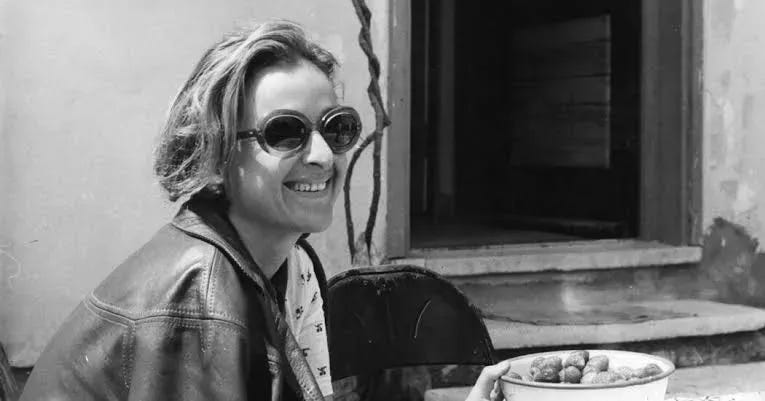
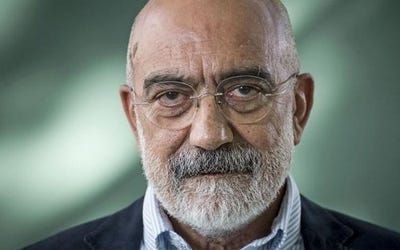


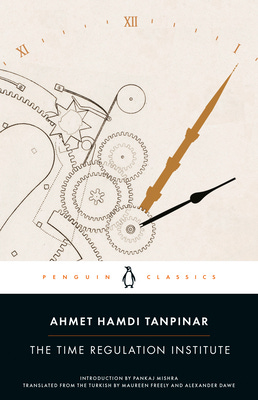
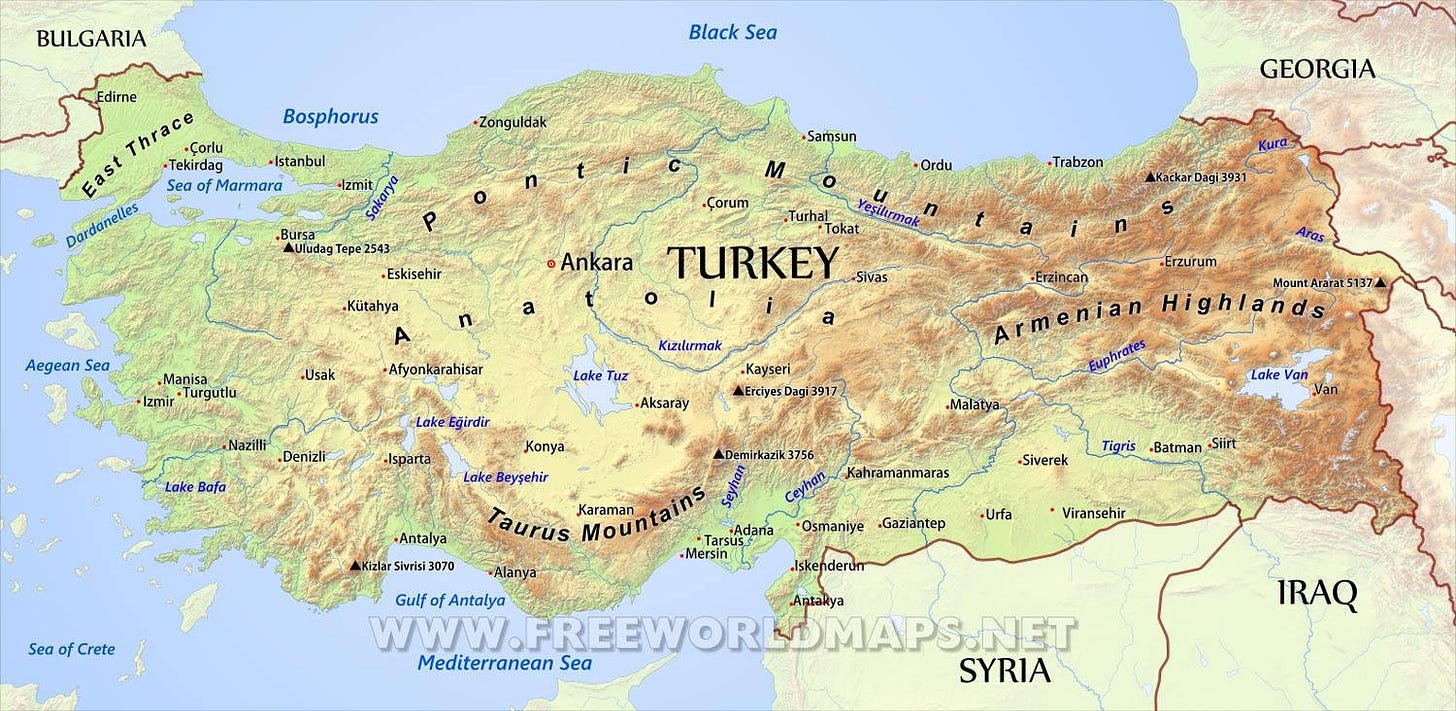
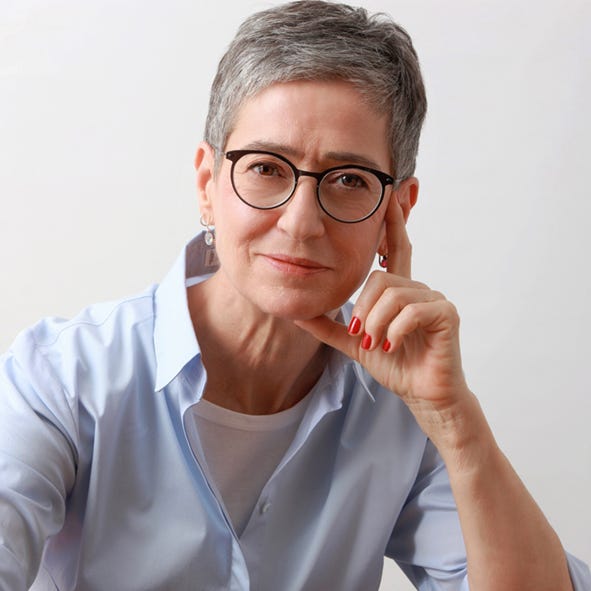

Thank you, David.
I’ve put Dawn and Altan’s memoir on my TBR. I read 10 Minutes 38 Seconds this summer.